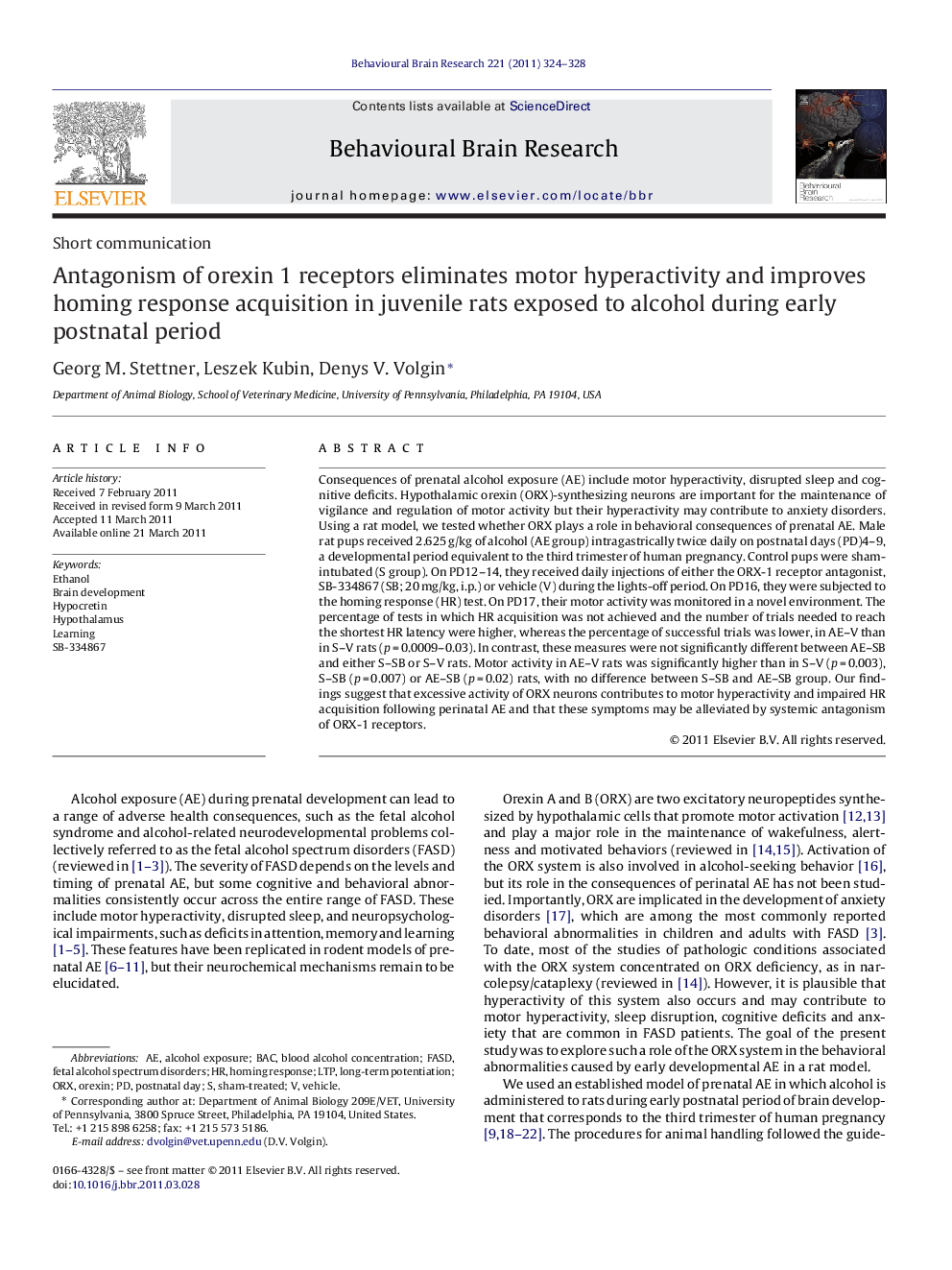| Article ID | Journal | Published Year | Pages | File Type |
|---|---|---|---|---|
| 4313710 | Behavioural Brain Research | 2011 | 5 Pages |
Consequences of prenatal alcohol exposure (AE) include motor hyperactivity, disrupted sleep and cognitive deficits. Hypothalamic orexin (ORX)-synthesizing neurons are important for the maintenance of vigilance and regulation of motor activity but their hyperactivity may contribute to anxiety disorders. Using a rat model, we tested whether ORX plays a role in behavioral consequences of prenatal AE. Male rat pups received 2.625 g/kg of alcohol (AE group) intragastrically twice daily on postnatal days (PD)4–9, a developmental period equivalent to the third trimester of human pregnancy. Control pups were sham-intubated (S group). On PD12–14, they received daily injections of either the ORX-1 receptor antagonist, SB-334867 (SB; 20 mg/kg, i.p.) or vehicle (V) during the lights-off period. On PD16, they were subjected to the homing response (HR) test. On PD17, their motor activity was monitored in a novel environment. The percentage of tests in which HR acquisition was not achieved and the number of trials needed to reach the shortest HR latency were higher, whereas the percentage of successful trials was lower, in AE–V than in S–V rats (p = 0.0009–0.03). In contrast, these measures were not significantly different between AE–SB and either S–SB or S–V rats. Motor activity in AE–V rats was significantly higher than in S–V (p = 0.003), S–SB (p = 0.007) or AE–SB (p = 0.02) rats, with no difference between S–SB and AE–SB group. Our findings suggest that excessive activity of ORX neurons contributes to motor hyperactivity and impaired HR acquisition following perinatal AE and that these symptoms may be alleviated by systemic antagonism of ORX-1 receptors.
► Rats were exposed to alcohol during the 3rd trimester equivalent of human gestation. ► Alcohol caused poor homing response acquisition and hyperactivity in juvenile rats. ► Antagonism of orexin 1 receptors ameliorated these effects of perinatal alcohol. ► Altered activity of the orexin cells may mediate adverse effects of perinatal alcohol.
